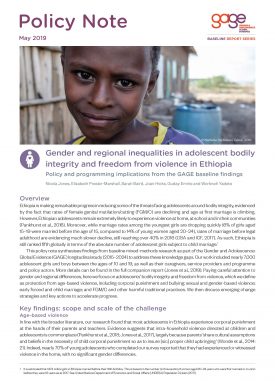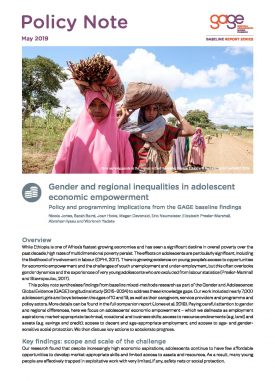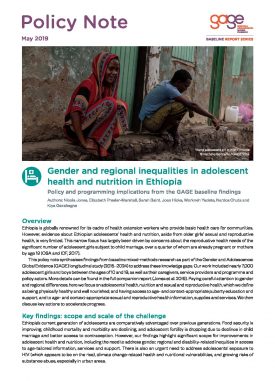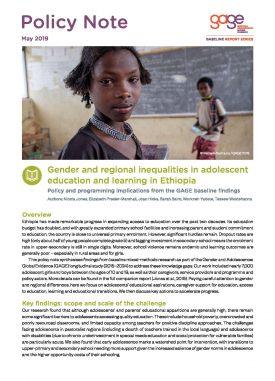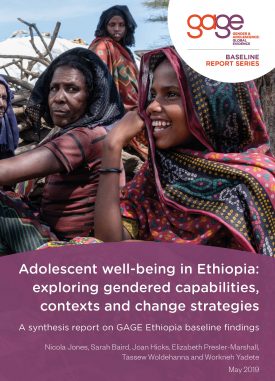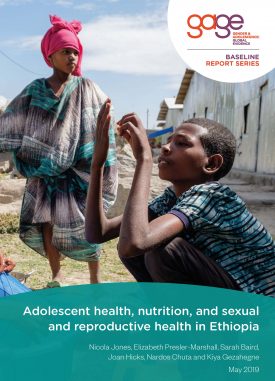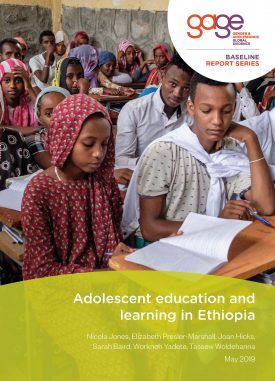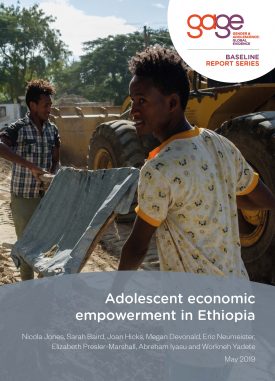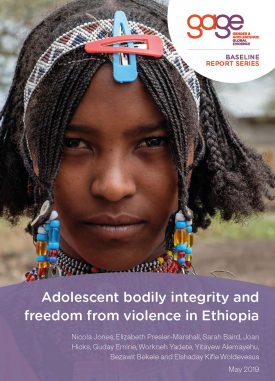The policy note synthesises findings from baseline mixed-methods research as part of the Gender and Adolescence: Global Evidence (GAGE) longitudinal study (2015–2024). Our work included nearly 7,000 adolescent girls and boys between the ages of 10 and 19, as well as their caregivers, service providers and programme and policy actors.
Paying careful attention to gender and regional differences, here we focus on adolescents’ psychosocial well-being and voice and agency – which we delineate as resilience and emotional efficacy; voice and decision-making opportunities within the family and community; mobility, access to peer networks and safe spaces; access to age-appropriate information and digital technology; and access to inspirational role models.
GAGE research found that improvements in adolescents’ access to voice and agency and psychosocial well-being are largely, though not exclusively, mediated through their greater access to formal education, which exposes them to new ideas (including their rights), offers them time to socialise with their friends, and provides opportunities to participate in clubs about topics that interest them.
Suggested citation
Jones, N., Baird, S., Hicks, J., Devonald, M., Neumeister, E., Presler-Marshall, E., Yadete, W. and Kebede, M. (2019) ‘Gender and regional inequalities in adolescent psychosocial well-being and voice and agency in Ethiopia.’ Policy Note. London: Gender and Adolescence: Global Evidence. (https://www.gage.odi.org/publication/gender-and-regional-inequalities-in-adolescent-psychosocial-well-being-and-voice-and-agency/)
